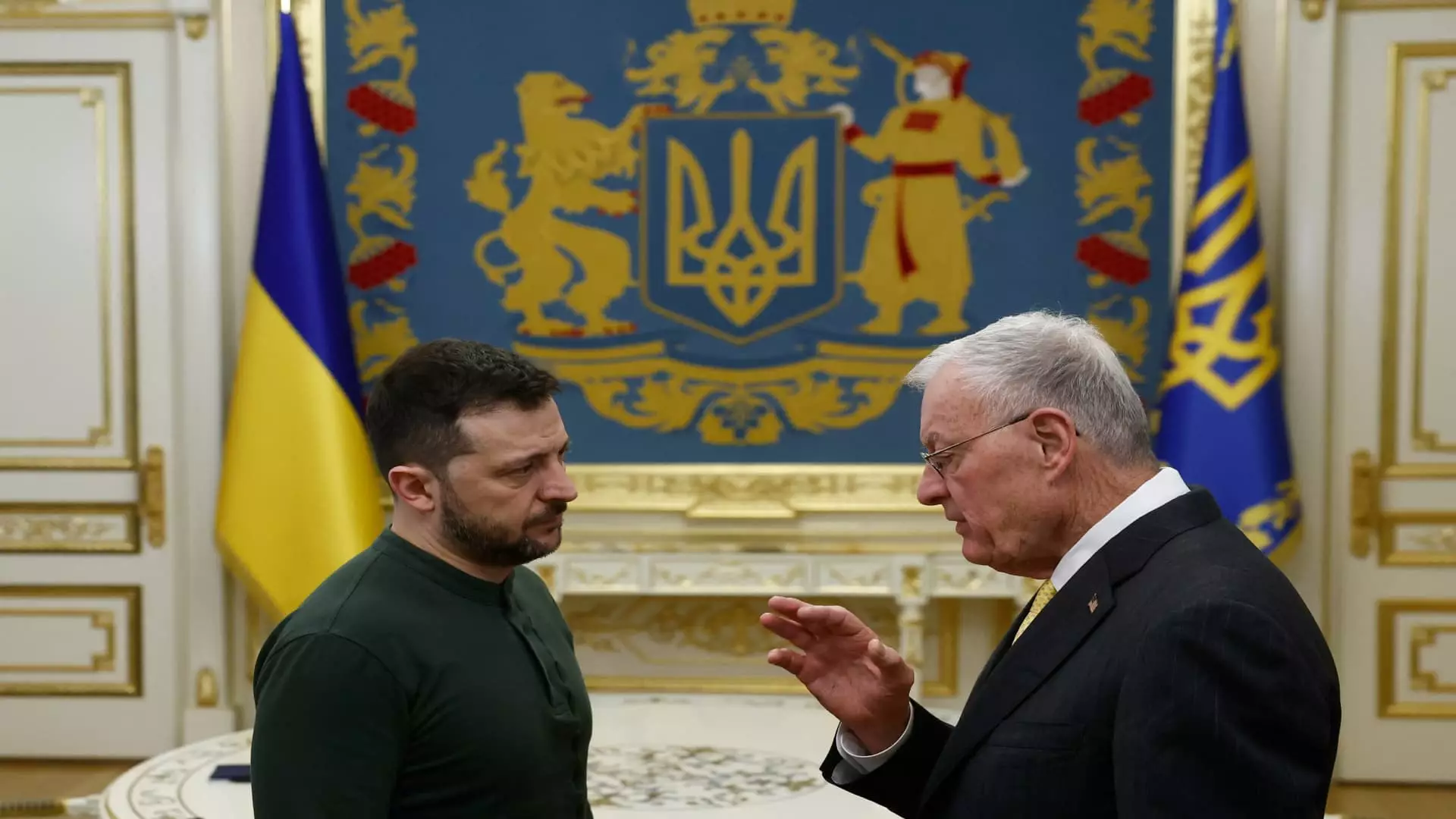In the intricate web of geopolitical negotiations, few threads are as vital and contentious as the relationship between the United States and Ukraine, particularly in the context of wartime support and resource access. Recent discussions between U.S. officials and Ukrainian leaders have unveiled heightened tensions surrounding Ukraine’s essential mineral resources and its reliance on SpaceX’s Starlink satellite internet. This situation not only affects military logistics but also reveals the underlying power dynamics and expectations between countries seeking to balance mutual interests against the backdrop of conflict.
Since the onset of the war instigated by Russia’s invasion of Ukraine in early 2022, Starlink has emerged as a beacon of connectivity for the embattled nation. It has transformed communications for the Ukrainian military, enabling operational coordination and technological warfare tactics that have been pivotal to Ukraine’s defense strategy. As some analysts aptly put, “Starlink is Ukraine’s lifeline,” emphasizing that losing access to this crucial system would severely undermine Ukraine’s operational capabilities. The satellite internet service has not only facilitated communications but has also become integral to the operation of modern military drones, enhancing Ukraine’s ability to conduct reconnaissance and engage battle tactics with efficiency.
The current negotiation landscape highlights the urgency and complexity of U.S. demands for access to Ukraine’s rich deposits of critical minerals. These resources, which include key elements like lithium, uranium, and titanium, are increasingly sought after in the global market, particularly due to the growing focus on green technologies and electric vehicles. As U.S. negotiators press Ukraine for access, reports indicate an alarming ultimatum: potential restrictions on Starlink services may be employed as leverage. This assertion underscores a precarious game where military support could be intertwined with economic interest, compelling Ukraine to re-evaluate its negotiation stance on mineral wealth.
Ukrainian President Volodymyr Zelenskiy has firmly resisted U.S. overtures that appear to commodify the nation’s resources in exchange for aid, stating that such terms lack the necessary security assurances. This conflict over resources highlights an imbalance in negotiation power, further complicated by the contrasting geopolitical stances of the involved parties. Zelenskiy’s approach, which has included the solicitation of investments in mineral extraction from allied nations, aims to secure Ukraine’s financial future while maintaining territorial sovereignty.
The unfolding drama between U.S. and Ukrainian leaders feeds into a wider narrative of political dynamics, notably the contrasting administrations of Donald Trump and Zelenskiy. Trump’s remarks labeling Zelenskiy as a “dictator” and his criticism of Ukraine’s responses strain the relationship and visibility of the negotiations. The existing rift may not only lead to internal scrutiny within Ukraine but also elicit varied reactions among U.S. lawmakers. While many rally around the idea of supporting Ukraine, views diverge regarding how to achieve this end, underscoring the complicated interplay between domestic and international politics.
The stakes are equally high for Elon Musk’s Starlink, a service that has made him a figure of admiration in Ukraine. However, Musk’s actions to curtail service in the past indicated that while business interests may align with humanitarian efforts, they can also lead to precarious implications for Ukraine. The combination of Musk’s influence over critical military infrastructure and the strategic demands imposed by the U.S. government presents a public relations challenge that may affect perceptions of fidelity and support from key allies.
As discussions progress, both Ukraine and the U.S. must navigate an increasingly complex terrain community laden with mistrust and strategic interests. The interdependence of military support and access to critical minerals signifies that the outcome of these negotiations will not merely dictate immediate wartime logistics but will resonate long into the future. The balance between leveraging essential resources and ensuring military aid raises critical questions about the nature of international alliances and the fundamental values underpinning them. Ultimately, the ability of both nations to find common ground amidst these ambiguities will shape the path forward, not just for Ukraine but for global security dynamics in the years to come.


Leave a Reply